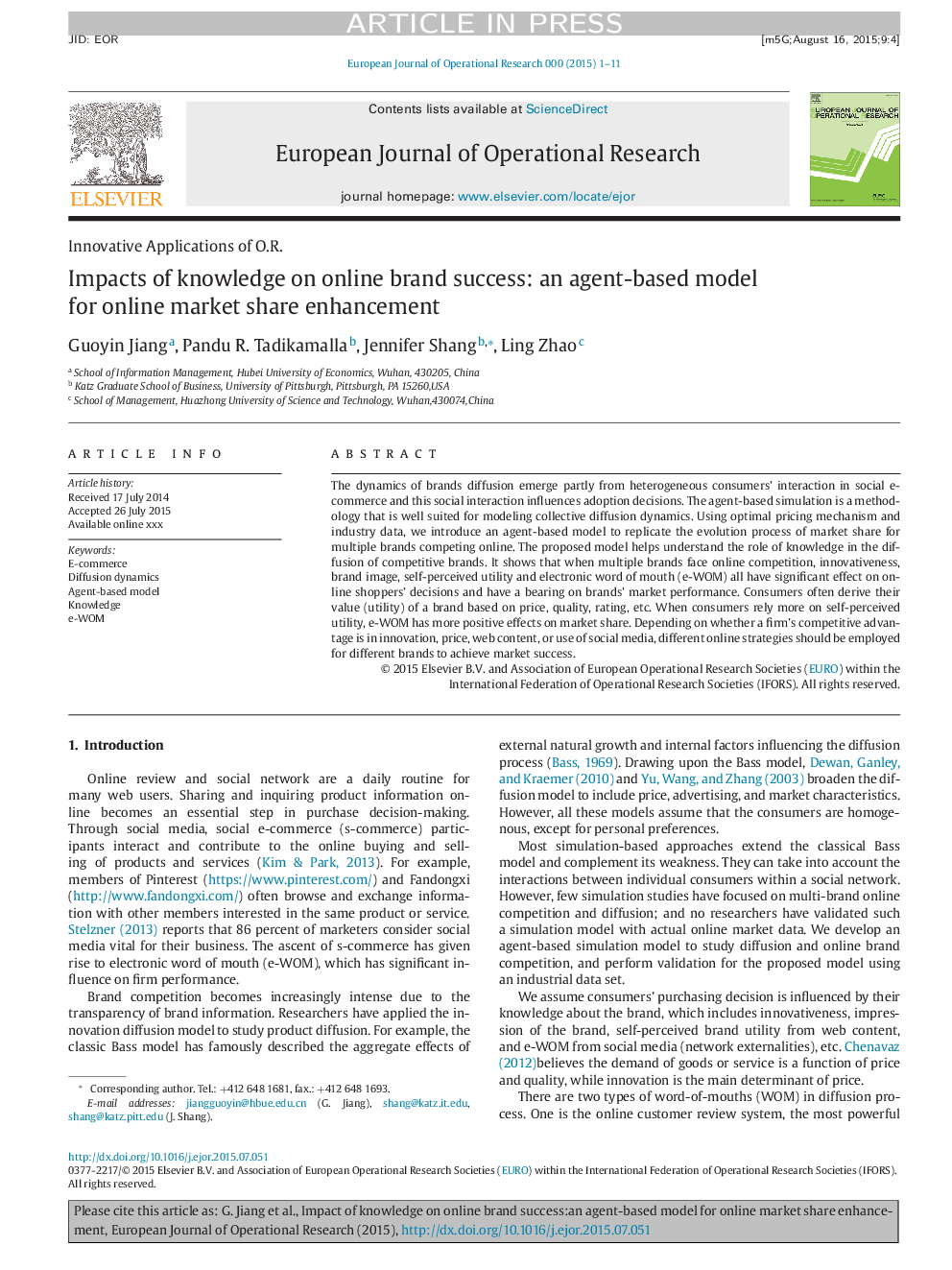| Article ID | Journal | Published Year | Pages | File Type |
|---|---|---|---|---|
| 6896215 | European Journal of Operational Research | 2016 | 11 Pages |
Abstract
The dynamics of brands diffusion emerge partly from heterogeneous consumers' interaction in social e-commerce and this social interaction influences adoption decisions. The agent-based simulation is a methodology that is well suited for modeling collective diffusion dynamics. Using optimal pricing mechanism and industry data, we introduce an agent-based model to replicate the evolution process of market share for multiple brands competing online. The proposed model helps understand the role of knowledge in the diffusion of competitive brands. It shows that when multiple brands face online competition, innovativeness, brand image, self-perceived utility and electronic word of mouth (e-WOM) all have significant effect on online shoppers' decisions and have a bearing on brands' market performance. Consumers often derive their value (utility) of a brand based on price, quality, rating, etc. When consumers rely more on self-perceived utility, e-WOM has more positive effects on market share. Depending on whether a firm's competitive advantage is in innovation, price, web content, or use of social media, different online strategies should be employed for different brands to achieve market success.
Related Topics
Physical Sciences and Engineering
Computer Science
Computer Science (General)
Authors
Guoyin Jiang, Pandu R. Tadikamalla, Jennifer Shang, Ling Zhao,
